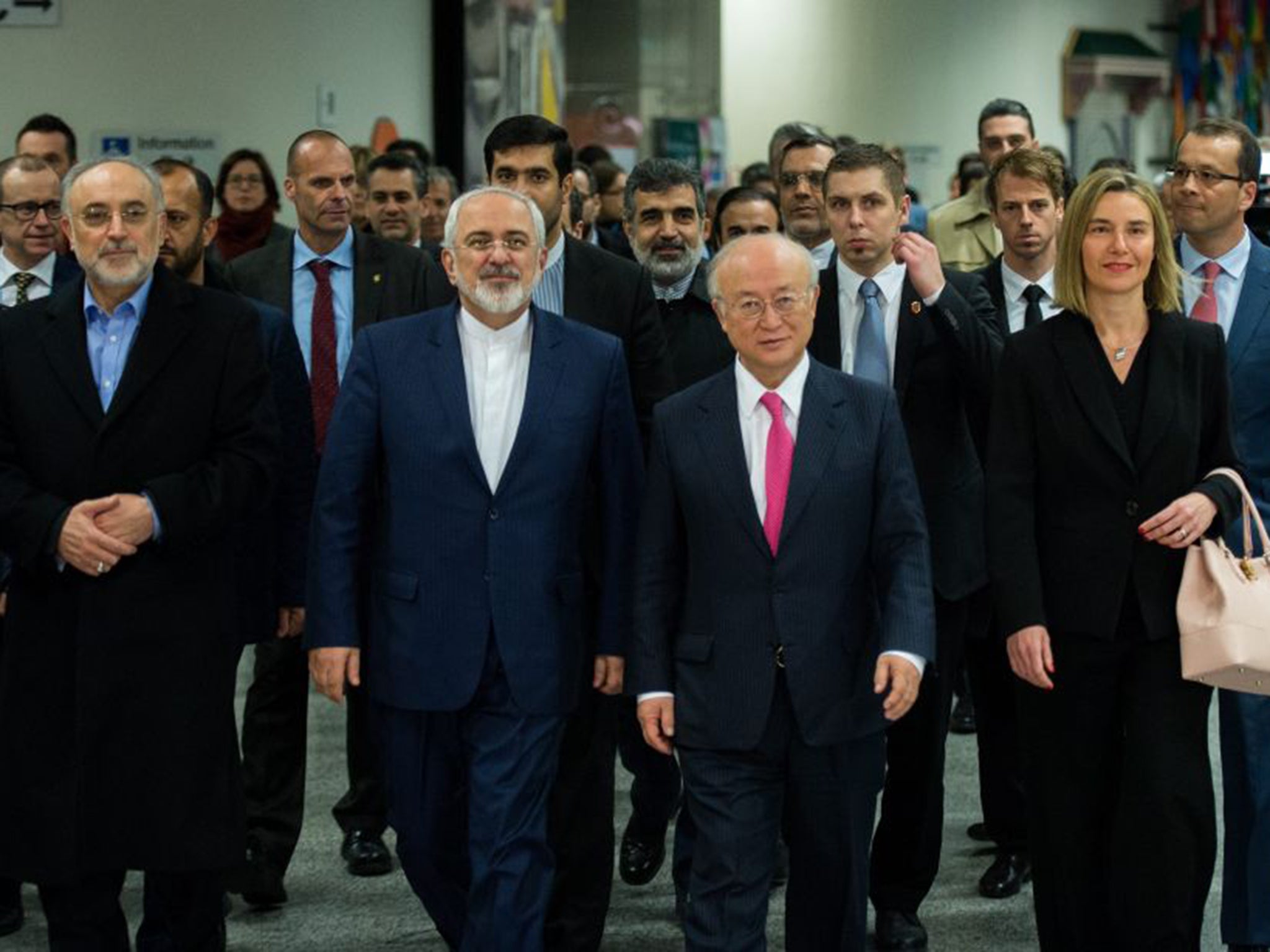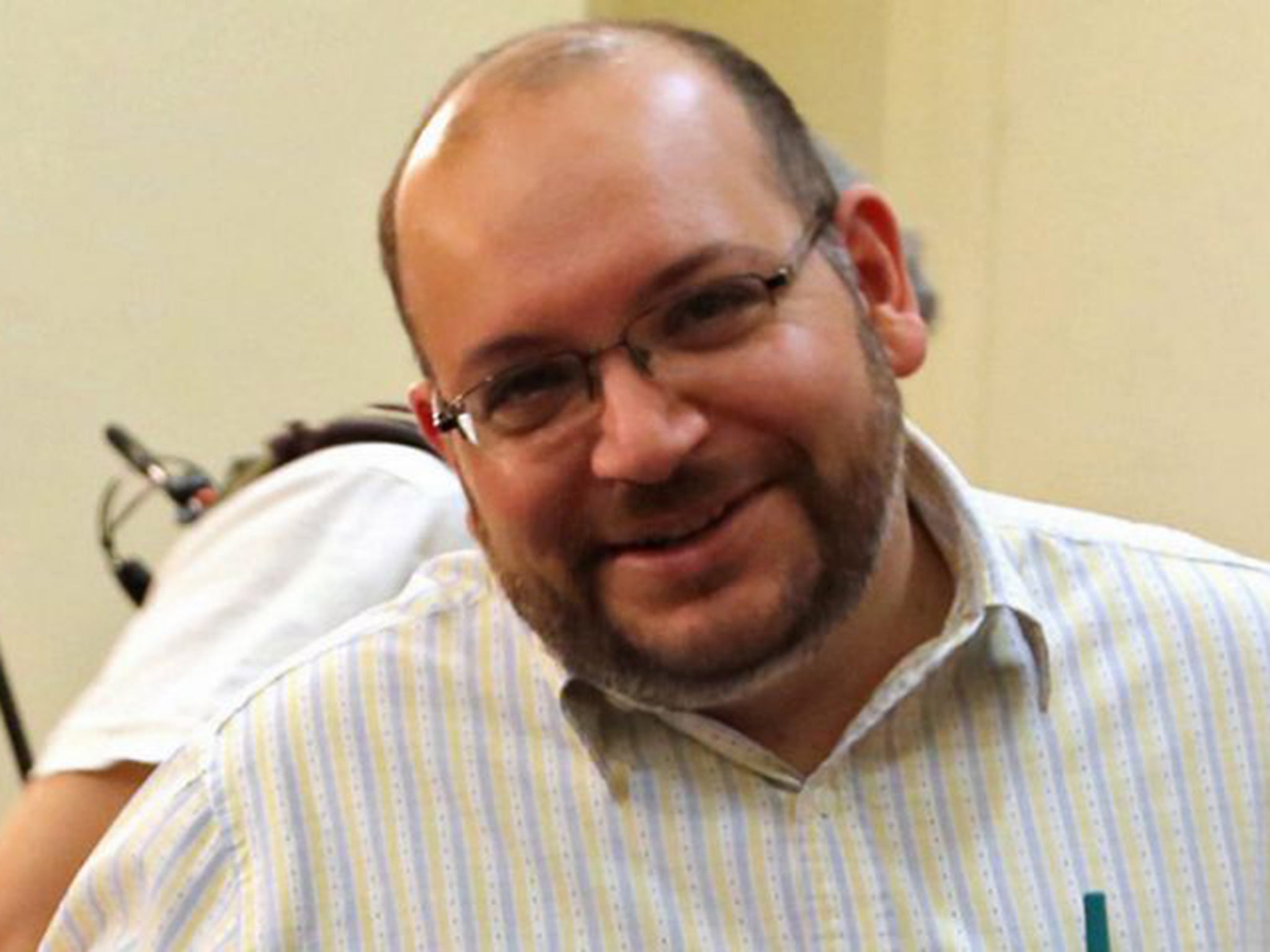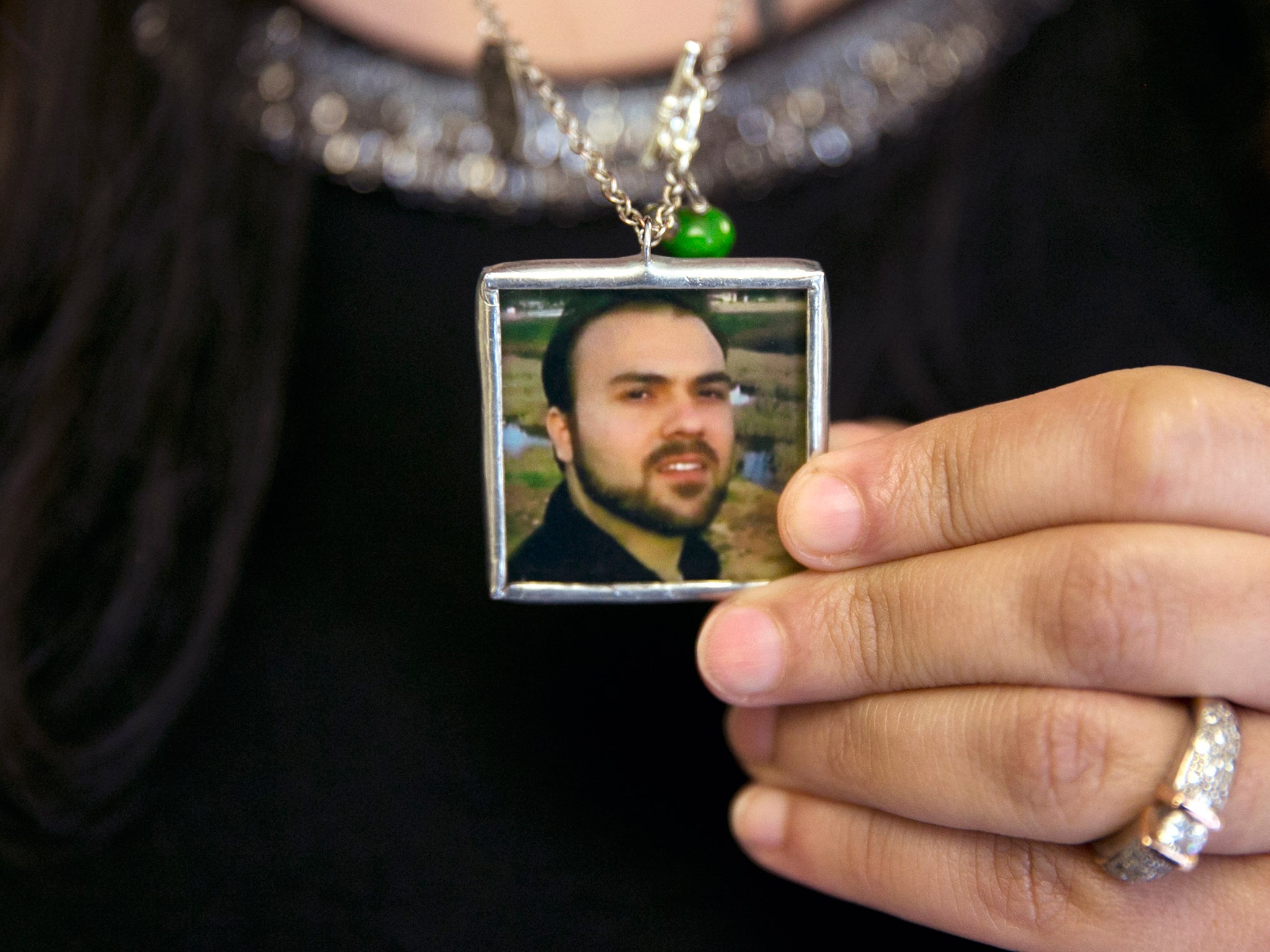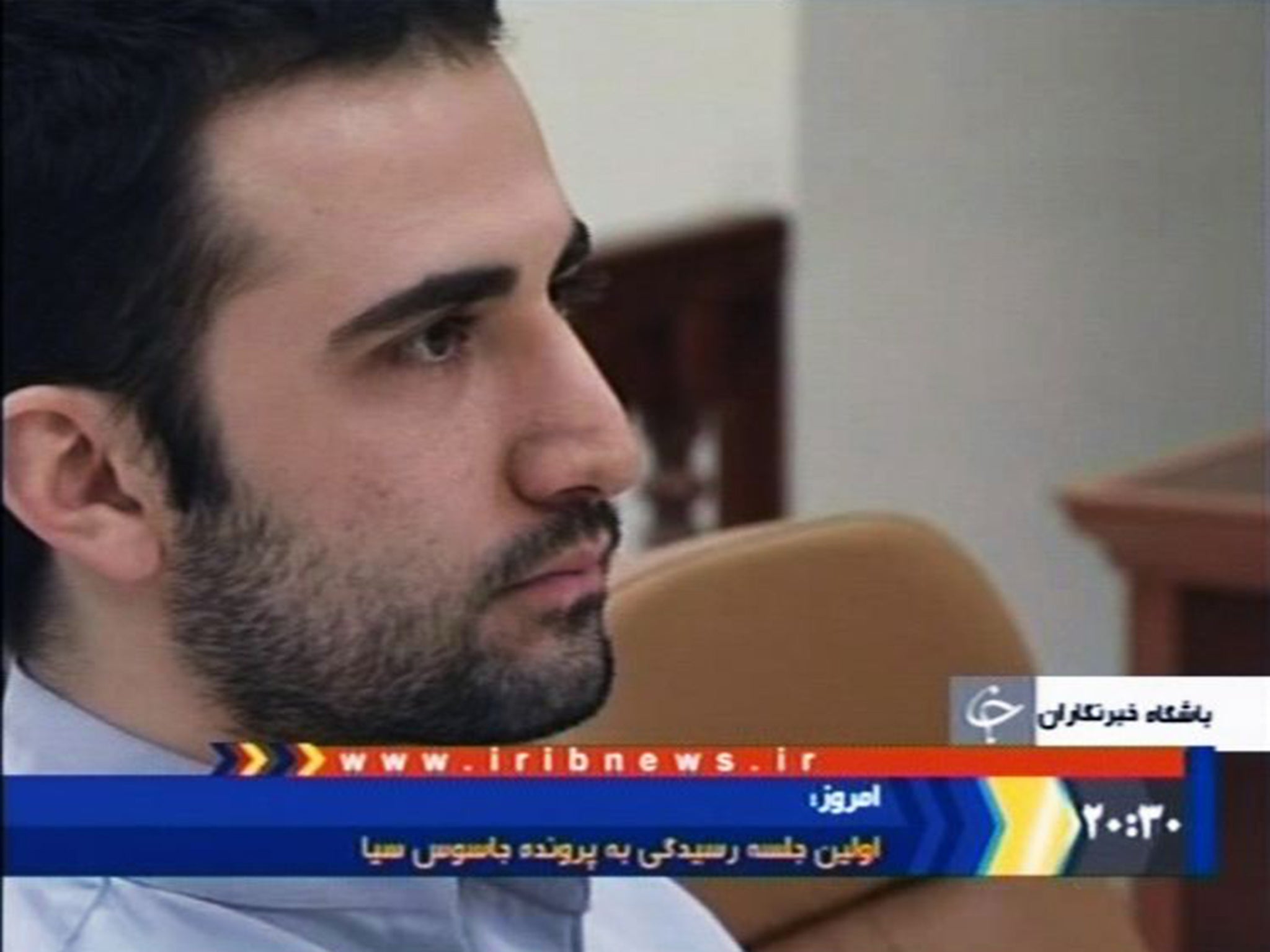Iran sanctions: UN watchdog confirms Islamic republic has curtailed its nuclear programme as officials claim 'the world is a safer place'
Tehran said to have met its obligations under historic weapons accord, allowing US and EU to lift trade restrictions

Your support helps us to tell the story
From reproductive rights to climate change to Big Tech, The Independent is on the ground when the story is developing. Whether it's investigating the financials of Elon Musk's pro-Trump PAC or producing our latest documentary, 'The A Word', which shines a light on the American women fighting for reproductive rights, we know how important it is to parse out the facts from the messaging.
At such a critical moment in US history, we need reporters on the ground. Your donation allows us to keep sending journalists to speak to both sides of the story.
The Independent is trusted by Americans across the entire political spectrum. And unlike many other quality news outlets, we choose not to lock Americans out of our reporting and analysis with paywalls. We believe quality journalism should be available to everyone, paid for by those who can afford it.
Your support makes all the difference.The world was a “safer place” because the threat of an Iranian nuclear weapon had been reduced, it has been claimed. The United Nations’ nuclear watchdog have confirmed that Iran has curtailed its nuclear programme as agreed with world powers, allowing the lifting of crippling trade sanctions on the Islamic republic.
World powers lifted the ban after the International Atomic Energy Authority confirmed that Iran had met its obligations. The historic deal with Tehran, first struck last July and verified late on 16 January, follows years of deadly confrontation as Iran’s critics accused it of trying to build nuclear weapons, a claim that Iran has always denied.
The US Secretary of State, John Kerry, said that “Iran has carried out all measures required under the [July deal] to enable Implementation Day [of the deal] to occur”. He said the announcement marked the moment that the nuclear accord transcended from “ambitious promise to direct action”.
Jubilant crowds greeted the announcement in Tehran. Iran’s President Hassan Rouhani congratulated the Iranian nation after implementation of the nuclear deal between Tehran and the six major powers which was aimed at curbing Iran’s nuclear programme in return for sanctions being lifted.
“Thank God for this blessing and bow to the greatness of the patient nation of Iran. Congrats on this glorious victory,” Rouhani tweeted. The IAEA’s director general, Yukiya Amano, said it was “an important day for the international community”.
The Foreign Secretary, Philip Hammond, said the findings of the IAEA inspectors had confounded sceptics who said that Iran would never give up on its nuclear programme. He urged British firms to take advantage of the new opportunities that would open as Iran was brought in from the cold.
“The nuclear deal with Iran, in which Britain played a major role, makes the Middle East and the wider world a safer place. Years of patient and persistent diplomacy, and difficult technical work, have borne fruit as we now implement the deal,” he said.
“There were many sceptics who said Iran would never deliver on its side of the bargain, but the independent International Atomic Energy Agency has said it has.
“Tonnes of uranium have been shipped out of Iran, thousands of centrifuges have been taken out of use and the core has been removed from the Arak reactor. Iran’s nuclear programme has been substantially rolled back, in return for the lifting of sanctions and the economic benefits that will bring.
“The UK has played a central role, and I hope British businesses seize the opportunities available to them through the phased lifting of sanctions on Iran. The future is as important as the landmark we’ve reached today.”
Lifting the international sanctions on Iran will unfreeze billions of dollars of assets and allow Iranian oil to be sold internationally.
In a further sign of the thawing of relations, the US and Iran announced they had completed a separate prisoner swap. Mr Kerry said the prisoner deal had “significantly picked up as a result of breakthroughs in the nuclear deal”. As part of the deal, Iran released four jailed US nationals, including the Washington Post correspondent Jason Rezaian, in exchange for seven Iranians imprisoned or charged in the US.

US officials declined to confirm the release of the four US prisoners until the plane taking them to Switzerland and then on to Germany, for medical checks at a US military base, had left. Iran’s state news agency named the other three Americans as Saeed Abedini, 35, a Christian pastor arrested in 2012 for organising home churches, Amir Hekmati, 32, a former US Marine, arrested in 2011 on spying charges while visiting his grandmother, and Nosratollah Khosavi-Roodsari. The detention of Mr Khosavi-Roodsari had not been previously revealed.
US officials said a fifth American detained in Iran, a student, has been released in an unrelated move. The student, identified as Matthew Trevithnick, was already on his way home.

Seven named Iranians were being released by the US, state media in Iran said. US lawyer Joel Androphy, who acts for three of those to be released, said the Iranian embassy informed him that his three clients, who have been charged with breaking sanctions but who have not yet been put on trial, have been issued a pardon by President Obama.
It has been reported that the seven Iranians were among 19 for whom Tehran had originally requested pardons. The deal also included US agreement not to seek the extradition of 14 Iranians accused of being involved in trafficking arms to Iran, the news agency reported.

US officials insisted that none of those released had been convicted of terrorism or violent offences.
John Kerry flew from London to Vienna, where he went straight into a meeting with Iran’s foreign minister, Mohammad Javad Zarif. “With the release of the IAEA chief’s report, the nuclear deal will be implemented,” Mr Zarif was quoted as saying by Iranian state media. He hailed the move as bringing about a “good day for the Iranian people”.
Ahead of the announcement, Iranian media reported that executives from two of the world’s largest oil companies, Shell and Total, had arrived in Tehran for talks with state firms. Shell later denied that representatives had been sent.
Under the nuclear deal, Iran will forgo enriching uranium, which experts feared could then be used to make a nuclear weapon. Once sanctions are lifted, Iran plans to swiftly increase its oil exports. Iran’s expected return to a glutted oil market is one reason that prices plunged to below $30 a barrel last week for the first time in more than a decade.
Tehran says it could boost exports by 500,000 barrels a day within weeks and 500,000 more within a year, in a world already producing 1.5 million barrels a day more than it uses. The US administration said the deal offered the best possible prospect of ensuring that Iran would not develop a nuclear weapon.
Join our commenting forum
Join thought-provoking conversations, follow other Independent readers and see their replies
Comments